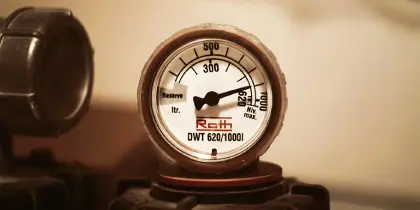
Mr. Rooter Plumbing explains the ideal water heater temperature for safety and efficiency.
|
Your water heater accounts for about 18% of your home’s energy bill. If it is set too high, you will be paying the price in your energy bill each month. Higher temps can even risk causing burns.
On the flip side, if your water heater is set too low, your water may not get hot enough, which puts you at risk of growing bacteria. Don’t set your water heater to anything below 120 degrees, as diseases can develop in the stagnant water inside the water heater, particularly Legionella, which is quite dangerous.
So, what is the best temperature range for your water heater? The EPA recommends 120 degrees because it’s hot enough to keep diseases at bay but not hot enough to cause scalding. This setting will also supply enough hot water for most small families and is relatively energy efficient. However, the best setting for you could vary based on a few factors.
We’ll explain some of the factors that influence what temperature your water heater should be and explore solutions to some common water tank problems in the following sections:
- Factors That Affect Hot Water Temperature Setting
- Solutions to Common Hot Water Tank Problems
Factors That Affect Hot Water Temperature Setting
Surprisingly, the temperature you should keep your water heater set at is not affected by the kind of plumbing you have (PEX, PVC, or copper), how the water is heated (gas or electric), or even if you have a tankless water heater.
In fact, the ideal temperature is far more likely to be impacted by the appliances you have in your home, the occupants of your home, and your personal budget goals.
Here are some factors that affect the ideal temperature setting for your water heater.
- Homeowners with a dishwasher that does not preheat the water may want to set their water heater to 140 degrees. This helps ensure the water will be hot enough to clean your dishes.
- Elderly homeowners or those with small children may want to keep the temperature at 120 degrees. According to BabyCenter.com, “It takes just two seconds for a child to receive third-degree burns from water that is 150 degrees and five seconds if it is 140 degrees, the temperatures at which hot water heaters often leave the factory.”
- Homes with occupants that have a suppressed immune system or respiratory disease should keep the hot water set to 140 degrees. While bacteria should not propagate over 120 degrees, higher temperatures further reduce the chance of bacterial growth.
- In general, many who live alone aim for a lower temperature in the acceptable range since the demand for hot water is less, and it saves money. Many who live in large household aim for a higher temperature to accommodate the increased demand for hot water.
- If you want to save money, for every 10 degrees you turn down the water tank thermometer, you save 3 to 5% on your energy bill.
Still undecided? Set it at 120 degrees and increase the temperature in small increments until you find the perfect shower temperature.
What's Your Current Temperature Setting?
You can find your current temperature setting by looking at the dial on the water heater (if equipped) or taking a temperature reading from the faucet. To measure it using the faucet, turn on the hot water tap and allow it to run for a few minutes before taking the temperature.
Solutions to Common Hot Water Tank Problems
If you’re worried about pathogens in your hot water or worried about scalding water, consider a hot water tank booster. This keeps your water at 140 degrees in the tank but mixes it with cold water to lower the temp to 120 degrees before it reaches the tap.
If you live in a large home where it takes a long time for hot water to reach the tap, a hot water circulating system can solve this. This system slowly continuously circulates hot water in the pipes to prevent it from cooling down before it reaches the tap.
Professional Plumbing Services
Perhaps your hot water isn’t hot enough no matter what setting your water heater is on. If you need help adjusting the water heater temperature or troubleshooting any problems, call your local Mr. Rooter Plumbing, or request an estimate online.

